
by Shashikanth Heerekar | Dec 30, 2025 | SEO News
Introduction
Today, most people use Google as the first step before choosing a clinic. When someone searches “dental SEO marketing near me,” they are usually looking for a trusted clinic close to their location. SEO helps clinics show up at the top of search results, making it easier for nearby people to find them online.
With proper SEO, a clinic’s website stays visible to local users, brings more visitors, and turns online searches into real patient visits. It also builds trust by showing accurate information, reviews, and location details. Unlike paid ads that stop when the budget ends, SEO is a long-term strategy that helps clinics grow steadily and reach the right people at the right time.
Why Dental SEO Marketing Near Me Is Important for Clinics
Dentists run clinics mainly to serve local patients. SEO helps make sure nearby people can easily find the clinic online with the support of SEO services for dentists.
Key Benefits:
- Shows your clinic name on Google searches
- Brings people who are close to your location
- Increases website traffic naturally
- Helps patients find you before competitors
Example:
If someone searches “dental clinic near me”, SEO helps your clinic appear on the first page, making it easier for patients to contact or visit you.
How Dental SEO Marketing Near Me Works
SEO improves your online presence so Google understands your clinic’s location and services.
What SEO Does:
- Improves your website visibility through online marketing
- Helps Google trust your clinic
- Connects local searches with your clinic location
When more nearby people visit your clinic and website, Google recognizes your clinic as relevant for that area and improves your local ranking.

Key Elements of Dental SEO Marketing Near Me
Google My Business Optimization
It improves your clinic’s visibility on Google Maps and in local search results. By keeping your profile accurate and updated, nearby people can easily find your location, contact details, and business hours.
- Update clinic name, address, and phone number
- Add working hours and photos
- Respond to patient reviews
Example:
A complete Google profile increases chances of appearing in “near me” searches.
Local Keyword Targeting
Using area-specific search terms helps your website connect with people searching for services close to their location. This makes your clinic more visible to nearby users who are more likely to visit or contact you.
- Target area-specific search terms
- Add keywords naturally in content
- Focus on what local people search
Example:
Using city or area names helps attract nearby visitors.
Online Reviews Management
Positive feedback from customers increases credibility and helps search engines view your clinic as reliable. Responding to feedback also builds confidence and improves visibility in local search results.
- Encourage patients to leave reviews
- Reply to reviews professionally
- Maintain a good rating
Example:
Clinics with positive reviews attract more clicks than clinics without reviews.
Local Citations and Directory Listings
Having your business details listed consistently across trusted websites helps search engines verify your location and authenticity. This improves visibility and increases the chances of appearing in nearby search results.
- Add clinic details to local directories
- Keep information consistent everywhere
- Improves local search credibility
Example:
Being listed on business directories helps Google trust your clinic details.
Location-Specific Content Creation
Creating content that talks about your city or nearby areas helps search engines understand where your services are offered. This makes it easier for people in that location to find your clinic when searching online.
- Write content for specific locations
- Answer local patient questions
- Share clinic updates
Example:
Blogs about services in your city help attract local searches.
How Dental SEO Marketing Near Me Attracts Patients
- People searching nearby find your clinic easily
- High Google ranking builds trust
- Easy access to contact and location details
- More walk-ins and appointment calls
SEO brings people who are already looking for services, making them more likely to visit.
Conclusion
Local SEO helps clinics grow by connecting them with nearby patients searching online. It boosts visibility, builds trust, increases website traffic, and delivers consistent results over time. By using effective local SEO strategies, clinics can stay ahead of competitors and naturally attract more patients.
FAQs
1.What is local dental SEO marketing near me?
Local SEO is a strategy that helps dental clinics appear in online searches made by people nearby. It ensures that potential patients can easily find the clinic, see its contact details, and visit or book appointments.
2. Why is dental SEO marketing near me important for clinics?
Most patients search for nearby services, and local SEO helps clinics get found easily.
3. How does Google My Business help SEO?
It improves local visibility and helps clinics appear in Maps and local results.
4. Do reviews affect local SEO?
Yes, positive reviews improve trust and help rankings in local searches.
5. For clinics, is SEO superior to sponsored advertisements?
SEO gives long-term results, while ads stop working once payment ends.
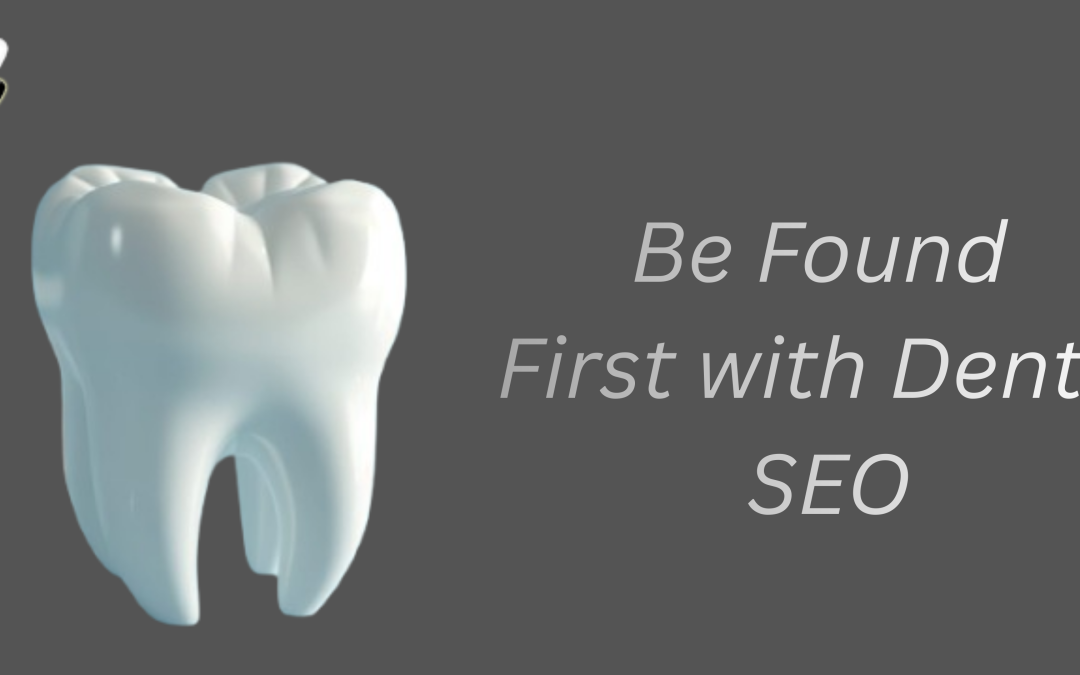
by Shashikanth Heerekar | Dec 30, 2025 | SEO News, Uncategorized
Introduction
In today’s digital world, people search on Google before choosing a dentist. Dental SEO service helps clinics appear at the top when patients look for pain treatment, dental clinic near me, teeth cleaning, braces, or cosmetic dentistry. By fixing technical issues and organizing content clearly, it makes it easy for patients to find, trust, and contact your clinic. Unlike paid ads, SEO brings long-term visibility, website visitors, and appointment bookings, making it a smart investment for dental practices.
Why SEO Is Important for Dental Websites
SEO is important for dental websites because it improves more than just search rankings—it enhances the overall experience for users. A well-optimized website loads faster, works smoothly on mobile devices, and presents information in a clear and organized way, helping visitors quickly find services, contact details, and appointment options. When people search for terms like “dentist near me” or “teeth cleaning clinic,” Google prioritizes websites that are reliable, easy to navigate, and technically sound. By improving website structure, content quality, and performance, SEO helps dental websites meet these expectations, build patient trust, and increase the chances of turning online searches into real clinic visits.
Example
Studies show that over 75% of users never scroll past the first page of Google. If your website is not ranking on page one, most potential patients will never see it.
Key Benefits of SEO for Dental Clinics
Long-Term ROI (Return on Investment)
SEO works as a long-term approach that brings steady results over time without the need for daily advertising costs. When a website is properly optimized, it keeps attracting people who are actively searching online for nearby clinics and treatment solutions.
One well-optimized page—such as a service page for teeth cleaning or root canal treatment—can bring patient inquiries for many years.
Key benefits of long-term SEO ROI:
- No ongoing cost per click like paid ads
- Lower cost per lead compared to Google Ads
- Steady growth in website traffic over time
- More appointment bookings from organic search
- Better visibility for local dental searches
Simple stat example:
Studies show organic search drives over 50% of website traffic, making SEO a cost-effective way for dental clinics to attract patients. With SEO, your website works 24/7, bringing in patients and long-term value.
Example:
A dental clinic that invests in SEO once can receive consistent appointment bookings even after six months or one year.
Trust & Credibility
Websites that rank at the top of Google are seen as more reliable. When patients search for a dental clinic near me, teeth cleaning, braces, or cosmetic dentistry, they trust clinics with a clean, well-organized website.
Why trust matters in dental SEO:
- Top Google rankings build instant credibility
- Professional website structure creates a positive first impression
- Clear service pages explain treatments and reduce patient fear
- Easy contact and appointment options increase confidence
Simple stat example:
Around 75% of users trust businesses that appear on the first page of Google search results.
Strong trust and credibility help turn website visitors into real dental patients.
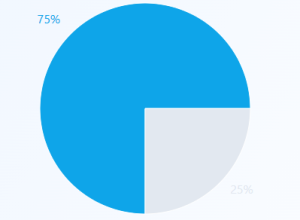
Competitive Advantage
SEO helps your business stay ahead of others in the same location by improving online visibility. When people search for nearby services, higher rankings make them choose you before competitors.
How SEO gives you an edge:
- Rank above nearby dental clinics in Google search
- Target local searches and location-based keywords
- Attract patients before they contact other clinics
Simple stat example:
More than 60% of clicks go to the top three Google search results, giving higher-ranking dental clinics a clear advantage.
Example:
If two clinics offer the same treatment, the one ranking first usually gets the call.
24/7 Visibility
SEO keeps your website visible all the time, even when your business is closed. It helps people find your services and book appointments anytime.
Benefits of 24/7 SEO visibility:
- Your website is always visible, even outside office hours
- Patients can explore services like tooth pain treatment or cosmetic dentistry anytime
- Online appointment requests increase, even overnight
- Builds convenience and trust for patients
Simple stat example:
Studies show that 70% of patients search for dental services online outside regular business hours, making 24/7 visibility crucial for growth.
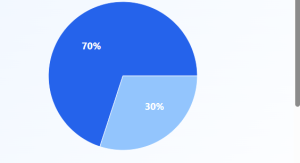
Technical SEO Improvements
Technical SEO ensures your dental website loads quickly, works smoothly, and ranks higher for keywords like “dental clinic near me,” “teeth cleaning,” “braces,” and “tooth pain treatment.”
Key improvements include:
- Faster website loading speed for better patient experience
- Mobile-friendly design for users searching on phones
- Fixing broken links and errors to avoid frustration
- Secure website (HTTPS) to protect patient information
Simple stat example:
Websites that load within 3 seconds can retain over 50% more visitors, helping more patients find your dental services.
Example:
53% of consumers abandon websites that take longer than three seconds to load, according to Google. Technical fixes help reduce this problem.
Online Reviews & Reputation Management
Patient reviews are crucial for building trust and improving your dental clinic’s online visibility. SEO helps manage reviews and strengthen your reputation for services like teeth cleaning, braces, tooth pain treatment, and cosmetic dentistry.
How SEO supports reputation:
- Encourages positive Google reviews from happy patients
- Manages negative feedback professionally to maintain trust
- Improves local map rankings for searches like dental clinic near me
Simple stat example:
Clinics with 4+ star ratings receive over 70% more appointment requests from online searches.
Example:
Clinics with higher ratings often appear more frequently in Google Maps results.
Tracking & Performance Reporting
SEO lets dental clinics track real results and see what’s driving new patients for services like teeth cleaning, braces, tooth pain treatment, and cosmetic dentistry. This data helps improve strategies and focus on the most effective efforts.
What can be tracked:
- Website traffic growth and visitor behavior
- Keyword rankings for local searches like dental clinic near me
- Appointment form submissions and phone call inquiries
- Performance of specific service pages
Simple stat example:
Clinics that track SEO performance see up to 30% more patient inquiries by optimizing what works best.
Competitor Analysis
SEO services for dentist include studying competitors to see what works and finding ways to outperform them. This helps dental clinics target keywords like root canal treatment, teeth cleaning, braces, and cosmetic dentistry more effectively.
How competitor analysis helps:
- Identify ranking gaps your clinic can target
- Improve content quality to attract more patients
- Focus on better local and service-specific keywords
- Create stronger pages for high-demand services like tooth pain treatment
Simple stat example:
Clinics that analyze competitors can improve search rankings by up to 25% faster, attracting more patients than nearby clinics.
Conclusion
SEO is one of the most reliable and cost-effective ways to grow a dental clinic online. From fixing technical issues to improving trust, visibility, and long-term results, dental SEO services help dental websites stay competitive, visible, and patient-focused in an increasingly digital world.
FAQs
1. How long does it take for SEO to provide results?
SEO usually starts showing improvements in 3–6 months, with stronger results over time.
2. For dentists, is SEO superior to paid advertisements?
SEO offers long-term value, while ads give short-term visibility. SEO is more cost-effective over time.
3. Does SEO help local dental clinics?
Yes, SEO helps clinics appear in local searches and Google Maps when nearby patients search.
4. Can SEO fix website problems?
Yes, technical SEO improves speed, structure, and usability, creating a better experience for visitors.
5. How can SEO increase patient trust?
SEO improves website design, organizes service information clearly, and highlights positive reviews, helping patients feel confident choosing your dental clinic.
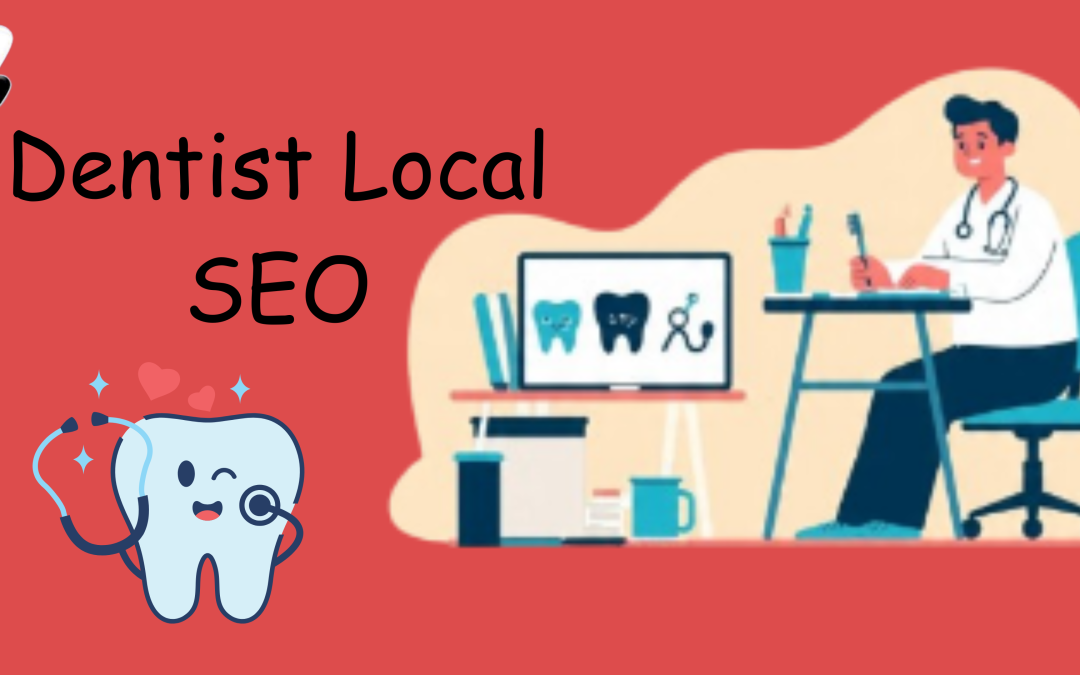
by Shashikanth Heerekar | Dec 29, 2025 | SEO News
Introduction
In today’s digital-first world, almost everything is accessible at our fingertips. From ordering food to booking medical appointments, people rely heavily on smartphones, voice assistants, and search engines to make decisions.
Dental care is no exception. Patients commonly search phrases such as “dentist near me,” “best dental clinic nearby,” or “emergency dentist in [city].” This is where local dentist SEO becomes essential.
Local SEO for dentists helps dental clinics appear prominently in Google Search and Google Maps when nearby patients are actively looking for dental services.
This article explains dentist local SEO in a simple and effective way, following Google’s content, indexing, and ranking guidelines to support long-term practice growth.
What Is Dentist Local SEO?
The process of optimizing a dental practice’s online presence to achieve higher rankings in local search results.
It helps Google understand your clinic’s location, services, and relevance to people searching for dental care in your area.
Rather than targeting global traffic, dentist local SEO focuses on attracting nearby patients who are ready to book an appointment.
For example, when someone searches “dental clinic near me,” Google displays clinics with accurate business information, strong reviews, optimized websites, and local relevance. Clinics that apply effective dentist local SEO are more likely to appear at the top of these results.
This is why many modern dental practices rely on specialized SEO services for dentist to manage local optimization correctly.
How Can Dentist Local SEO Help Dentists Get More Customers?
Dentist local SEO targets high-intent users people actively searching for dental care in your area. These users are much more likely to schedule appointments than general website visitors.
By optimizing your Google Business Profile, local citations, and location-specific content, your practice becomes easier to find in search results and on Google Maps.
Dentist local SEO helps dentists by:
- Increasing exposure on Google Maps and Search
- Driving more phone calls and online appointment bookings
- Building trust through positive reviews and accurate business listings
- Helping clinics compete effectively with nearby dental practices
For example, a clinic that appears in the Google Maps 3-pack typically receives more calls and website visits than clinics ranked lower. Even small improvements in a dentist’s local SEO can lead to noticeable growth in patient inquiries.
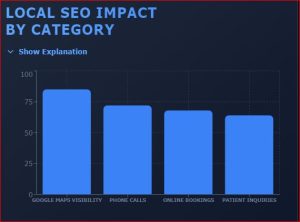
The above graph shows an 85% increase, which means your dental clinic appears far more often in Google Maps, driving higher visibility. a 72% rise in phone calls shows more patients contacting you directly from search results.
a 68% increase in online bookings reflects easier appointment scheduling. 64% growth in patient inquiries indicates stronger engagement. Together, these gains from dentist local SEO lead to more appointments, trust, and consistent patient growth.
Optimize Your Google Business Profile
Optimizing your Google Business Profile (formerly Google My Business) is one of the most important steps in a local SEO strategy for dentists. This profile acts as the digital front door of your dental clinic and is often the first thing potential patients see when searching on Google or Google Maps.
Google relies heavily on your Google Business Profile to determine local rankings and visibility. A complete and accurate profile helps Google understand your clinic’s location, services, and credibility.
For example, a dental clinic updates its business hours, adds treatment categories, uploads high-quality clinic photos, and responds to patient reviews. These actions improve engagement and strengthen dentists’ local SEO signals.
Best Practices for Optimization:
- Ensure accurate name, address, and phone number (NAP)
- Choose the correct dental service categories
- Upload high-quality photos regularly
- Post updates, offers, and announcements
- Respond to all reviews professionally
Most professional SEO services for dentists prioritize Google Business Profile optimization because it directly impacts dentist local SEO rankings.
Optimize Your Website for Local Search
Include patient reviews, testimonials, and helpful blog posts to build trust and authority. A fast, mobile-friendly, and easy-to-navigate website improves user experience and helps attract more local patients.
For example, a dental website includes location-based keywords such as “dentist in [city]” within page titles, headings, and service descriptions. The website works smoothly on mobile devices and loads quickly.
Website Optimization Essentials:
- Mobile-friendly and responsive design
- Fast page-loading speed
- Clear service and location-specific pages
- Natural use of local keywords
A well-optimized website helps Google index your content faster and improves overall dentist local SEO performance
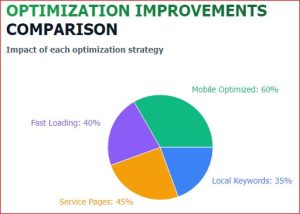
This pie chart represents that mobile optimization has the biggest impact (60%), showing most users visit on phones.
Service pages (45%) and fast loading (40%) help users understand services and stay on the site. Local keywords (35%) improve visibility in nearby searches. Overall, all optimizations together improve results.
How Online Reviews Boost Your Dental Clinic’s
Online reviews are a key factor in dentist local SEO, helping your clinic appear higher in local search results and Google’s map pack.
They not only influence Google’s ranking algorithm but also affect how potential patients perceive your clinic. Positive reviews build trust, encourage new patients to book appointments, and strengthen your online reputation.
For example, after a successful appointment, a clinic politely asks patients to leave a Google review. Over time, positive reviews improve dentist local SEO, increase visibility, build trust, and attract more patients.
Benefits of Reviews:
- Improved Google Maps visibility
- Increased patient trust and credibility
- Higher conversion rates
- Stronger local authority signals
Review management is a key component of effective SEO services for dentists and should never be overlooked.
Choosing the Right Dental Local SEO Marketing Company
When selecting a dental local SEO marketing company, avoid agencies that promise instant or guaranteed rankings. Local SEO for dentist is a long-term strategy influenced by competition, location, website quality, and Google algorithm updates.
:
For example, publishing blog posts that answer common dental questions for a specific city helps Google understand topical relevance and strengthens the dentist’s local SEO.
Conclusion
For dental clinics, online visibility directly impacts patient growth and revenue. Local dentist SEO ensures your clinic appears when nearby patients are actively searching for dental care.
By investing in professional SEO services for dentist, optimizing Google Business Profiles, improving website performance, collecting reviews, and creating location-focused content, clinics can achieve faster indexing, higher rankings, and steady appointment bookings.
When implemented correctly, dentist local SEO positions your practice exactly where it matters most at the top of local search results, in front of patients ready to book.
FAQs
1. What is dentist local SEO?
Dentist local SEO helps dental clinics rank higher in local search results and Google Maps. It improves visibility for nearby patients searching for dental services, leading to more calls, visits, and appointment bookings.
2. How long does dentist local SEO take to show results?
Google may index content within a few days. However, noticeable ranking improvements usually take 3–6 months. Consistent dentist local SEO efforts deliver long-term growth.
3. Are SEO services for dentists necessary?
Yes, SEO services for dentists help clinics stay competitive online by improving visibility, credibility, and patient trust, resulting in steady appointment growth.
4. Do reviews affect dentists’ local SEO rankings?
Yes, reviews strongly influence local search rankings and visibility. Positive reviews build trust with both Google and potential patients and increase click-through rates and conversions.
5. How does dentist local SEO help attract emergency patients?
Dentist local SEO improves visibility for urgent and location-based searches like “emergency dentist near me.” This helps clinics appear on Google Maps and search results when patients need immediate dental care, increasing same-day calls and appointments.
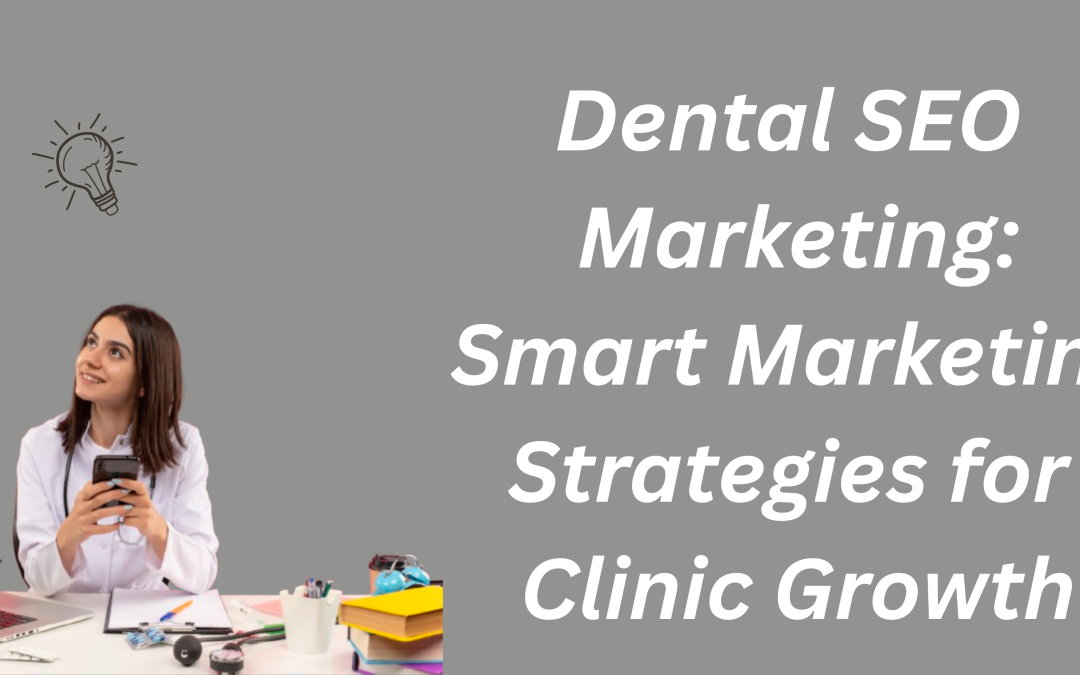
by Shashikanth Heerekar | Dec 29, 2025 | SEO News
Introduction
In today’s digital world, patients search online before visiting a dental clinic. Whether it is tooth pain, cleaning, braces, or cosmetic treatment, most people type “dentist near me” on Google. If your clinic does not appear on the first page, patients are likely to choose another option. This is where dental SEO marketing becomes a powerful tool, helping clinics reach the right audience, build trust, and grow consistently in a competitive market.
Why Online Marketing Matters for Dental Practices
SEO marketing is crucial for dental practices because it boosts website rankings and overall visibility. When your clinic is promoted across multiple platforms, search engines see it as valuable, helping you reach more potential patients naturally without relying solely on paid ads.
Why Dental Clinics Need SEO More Than Ever
Modern dental clinics face strong competition, especially in cities where multiple clinics offer similar services. Patients usually trust clinics that appear at the top of search results.
Here is why SEO plays a critical role today:
- The majority of users never get past Google’s first page.
- Local searches often lead to quick actions like calls or visits
- Clinics with strong online visibility are seen as more trustworthy
For example, a patient searching “emergency dentist near me” is more likely to call one of the top-ranked clinics they find first.
Core Elements That Drive Dental SEO Success
Local Search Optimization
Local search optimization helps dental clinics appear in Google Maps and “near me” searches, making it easier for nearby patients to find and contact the clinic. Optimizing your Google Business Profile and using location-based keywords increases visibility and ensures your clinic appears at the top for relevant local searches.
Local SEO includes:
- Optimizing your Google Business Profile with updated details
- Adding accurate clinic name, address, and phone number across all platforms
- Using location-based keywords in website content and listings
- Uploading clinic photos and service information regularly
Example:
Updating your Google Business Profile with accurate hours and services helps patients searching “emergency dentist near me” find and contact your clinic instantly.
Technical Website Optimization
Technical website optimization ensures a dental clinic’s site is fast, mobile-friendly, and secure, providing a smooth experience for both visitors and search engines. Websites that load quickly, especially within 3 seconds, keep patients engaged and increase the likelihood of booking appointments.
Key elements of technical optimization include:
- Fast page loading speed to reduce waiting time for users
- Mobile-friendly design so the website works well on phones and tablets
- Secure HTTPS website to protect user data and build trust
- Easy navigation that helps patients quickly find services, contact details, and booking options
Example:
If a clinic’s website loads slowly or is difficult to use on mobile, patients may leave and choose another clinic. A well-optimized site keeps visitors engaged and improves search visibility.
Social Media Search Support
Social media enhances a dental clinic’s online presence by boosting brand awareness and driving traffic to the website. Clinics that regularly share helpful posts on platforms like Facebook and Instagram often see higher engagement and increased visibility.
How social media supports online growth:
- Sharing educational dental posts such as brushing tips, cavity prevention, or treatment explanations
- Promoting blogs and service pages to guide patients to detailed information on your website
- Driving traffic to your website through post links, stories, and profile sections
Example:
Sharing a blog on “signs you need a root canal” on social media can lead users to visit your website and book an appointment.
Off-Page SEO Activities
Off-page SEO strengthens a dental clinic’s authority by showing search engines that trusted websites and directories recognize and recommend it. Clinics with high-quality backlinks often rank higher because search engines view them as more reliable.
Key off-page SEO activities include:
- Quality backlinks from trusted websites, such as health blogs, dental directories, or local news sites
- Business listings and directories, where your clinic details appear consistently across online platforms
- Mentions on local platforms, like community websites, forums, or local business pages
Example:
If a popular health website links to your clinic, more patients may find your services, and your site’s search ranking can improve.
Content Creation for Patients
Content creation for patients provides clear and helpful information about dental treatments, helping visitors feel confident and stay longer on your site. Websites that regularly publish informative content also attract more organic traffic and improve search rankings over time.
Key content types for dental clinics include:
- Blog posts about treatments, such as teeth cleaning, root canal procedures, or braces, written in simple language
- FAQs for common dental problems, answering questions like “Why do my gums bleed?” or “Is tooth pain serious?”
- Service pages with simple explanations, helping patients clearly understand what each treatment involves
Example:
A patient searching “what happens during a root canal” is more likely to book an appointment after reading a clear and informative blog on your website.
Patient Reviews & Online Reputation
Patient reviews and online reputation greatly influence both patient decisions and search engine rankings. Clinics with positive reviews, especially 4-star or higher, build trust and attract significantly more appointment requests.
Key practices to build a strong online reputation include:
- Encouraging satisfied patients to leave reviews after successful treatments or check-ups
- Responding to feedback professionally, whether it is positive or negative, to show care and responsibility
- Maintaining high ratings by consistently offering good service and patient experience
Example:
A patient searching “best dental clinic near me” is more likely to choose the clinic with higher ratings and recent positive reviews.
Website Design & Conversion Optimization
Website design and conversion optimization turn visitors into patients by making your dental site clean, professional, and easy to navigate. Clear layouts and visible call-to-action buttons help patients find information and book appointments quickly, boosting conversions.
Key elements of an effective dental website include:
- Clear call-to-action buttons, such as “Book Appointment” or “Call Now,” placed where visitors can easily see them
- Easy appointment booking forms that ask for minimal details and work smoothly on mobile devices
- Clean and professional layout with readable text, simple colors, and well-organized service pages
Example:
If a patient visits your website for teeth cleaning and immediately sees a visible “Book Appointment” button, they are more likely to click and schedule a visit.
The Role of Professional SEO Support
Many clinics choose SEO services for dentist websites to manage keyword research, local optimization, performance tracking, and ongoing improvements. This allows the dentist to focus on patient care while SEO experts handle online visibility and website growth. With professional support, dental clinics can attract the right patients and grow consistently without managing technical tasks themselves.
The Importance and Role of SEO in Dental Growth
SEO plays a vital role in helping dental clinics grow by connecting them with patients exactly when they need care, whether for tooth pain, cleaning, or cosmetic treatments. Unlike paid ads, SEO provides continuous visibility and attracts regular website visits, calls, and appointments without daily advertising costs. It also builds credibility and trust, as patients naturally view clinics that rank organically as reliable and professional. Over time, this strengthens the clinic’s reputation, encourages positive reviews, and supports long-term growth by ensuring a steady patient flow in a cost-effective and sustainable way.
Conclusion
Dental SEO marketing is essential for dental clinics to grow online. It boosts visibility, attracts targeted patients, builds trust, and increases appointments. With the right strategy, clinics can maintain a strong online presence, reach local patients, and achieve long-term success without relying solely on paid advertising. Where SEO Service can play very important role on your website and business building.
FAQs
Q1: What is dental SEO marketing?
It is the process of optimizing a dental clinic’s online presence to rank higher in search results and attract local patients.
Q2: How long does it take for SEO to yield results?
Most clinics start seeing improvements within 3 to 6 months, depending on competition.
Q3: Is local SEO important for dental clinics?
Yes, most patients search for nearby dentists, making local optimization essential.
Q4: Do reviews really affect rankings?
Yes, positive reviews improve trust, visibility, and local search performance.
Q5: Can SEO replace paid advertising?
SEO complements ads and provides long-term benefits, while ads offer short-term visibility.
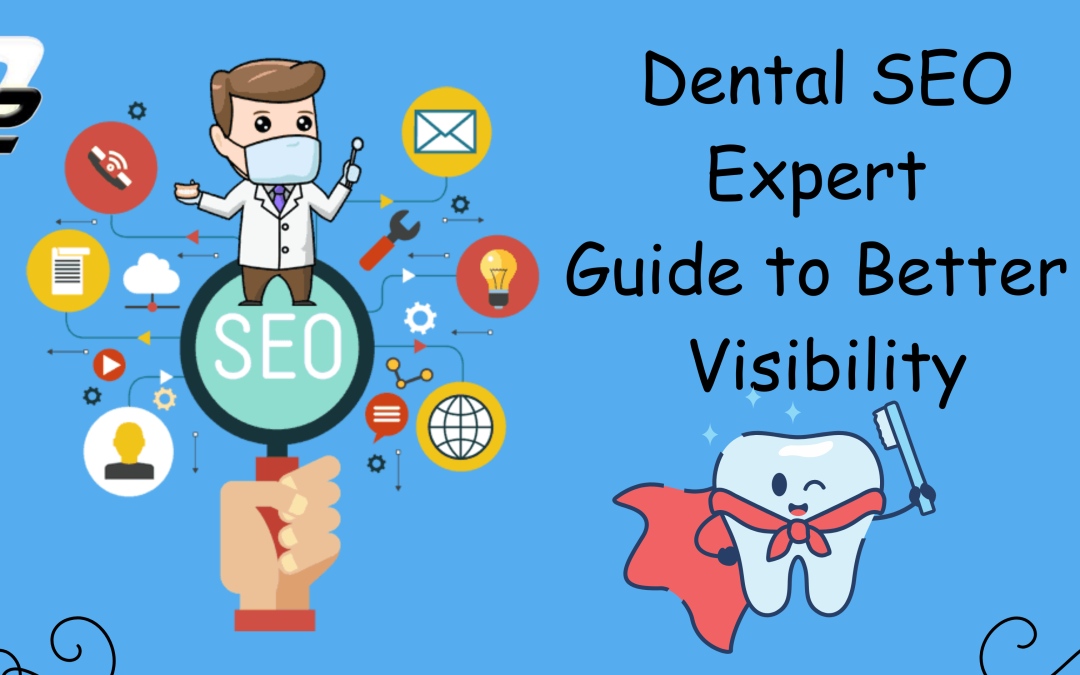
by Shashikanth Heerekar | Dec 29, 2025 | SEO News
Introduction
Modern dental practices combine advanced technologies, such as 3D printing, AI-powered diagnostics, and online appointment systems, with SEO services for dentists to reach a wider patient base. Dental clinics that use SEO can appear higher in search engine results, making it easier for patients to find them online.
This blend of technology, expertise, and SEO helps dentists grow their practice and provide better patient care. People typically prefer to use search engines like Google or Bing to find various kinds of services.
Therefore, SEO services for dentists are essential for both acquiring new patients and keeping existing ones, regardless of experience level. You can speak with our dental SEO specialists if you are a dentist and would like to learn how to use SEO services to attract new patients.
How Dentists Can Improve Local SEO
Improving local SEO helps dental clinics appear at the top of search results when patients nearby are looking for dental services.
The goal is to attract patients who are actively searching for treatments, delivering consistent, long-term growth instead of just short-term traffic.
Key strategies include:
- Local SEO optimization to ensure your clinic appears in nearby searches
- Google Business Profile optimization to enhance visibility and credibility
- Targeted service-based keywords like “dentist near me” or “teeth whitening [city]”
- Mobile-friendly website design to provide a seamless experience for users on smartphones
- Patient-focused content creation such as blog posts, FAQs, and treatment guides
For example, a dental clinic optimizes its Google Business Profile, targets local keywords like “dentist in [city],” and maintains a mobile-friendly website. By publishing patient-focused content, it ranks higher in local searches and attracts more nearby patients.
How SEO for Dentists Improves Online Visibility
Understanding how dental SEO improves patient engagement is crucial for sustainable practice growth.
Dental SEO targets users with high intent—people actively searching for dental care in your area. By optimizing your website, creating relevant content, and managing local listings, SEO helps your clinic appear at the top of search results.
Dental SEO increases patient leads by:
- Improving search engine visibility
- Driving targeted traffic to dental websites
- Enhancing trust through online reviews and accurate listings
- Converting visitors into appointment bookings
This approach ensures higher-quality leads rather than random website traffic.
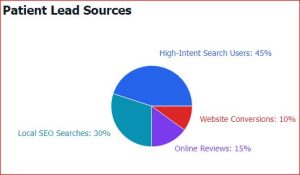
The pie chart shows where patient leads come from. Most leads are generated by high-intent search users, followed by local SEO searches. Online reviews and website conversions further support consistent lead growth.
Why You Need a Dental SEO Expert
A dental SEO expert offers services such as local SEO, Google Business Profile optimization, keyword research, on-page and technical SEO, content creation, review management, and competitor analysis to help dental clinics improve visibility, attract more patients, and grow consistently online.
A dental SEO expert helps with:
- Dental keyword research
- Local SEO for dentists
- Conversion-focused website optimization
Their goal is to improve visibility while increasing patient inquiries.
How to Choose the Right Dental SEO Expert
Choosing the right dental SEO expert ensures your website ranks higher in local searches and reaches patients who are actively looking for dental care.
They provide tailored strategies, including content optimization, link building, and reputation management, to strengthen your clinic’s online presence and credibility
When choosing a dental SEO expert, look for:
- Proven experience in dental SEO services
- Transparent SEO strategies and reporting
- Knowledge of the best SEO strategies for dentists
- Clear explanation of how dental SEO increases patient leads.
A reliable expert will align SEO efforts with your clinic’s business goals.
This graph shows what matters most when choosing a dental SEO expert.
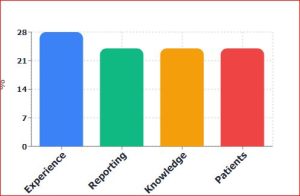
Proven experience in dental SEO holds the highest importance, followed by transparent reporting. Knowledge of SEO strategies and clarity on patient lead generation are equally important, showing clinics value both expertise and measurable results.
Conclusion
Dental SEO is an essential growth tool for modern dental clinics. By implementing proven SEO strategies, understanding how dental SEO attracts patients, and choosing the right dental SEO expert for your practice, clinics can achieve higher online visibility and consistent patient growth.
Effective dental SEO not only improves search rankings but also enhances the user experience on your website, making it easier for potential patients to find information and book appointments.
Additionally, it helps build credibility through positive reviews, local listings, and optimized content tailored to your services. This Dental SEO Expert’s Guide to Better Visibility provides a clear roadmap for building long-term online success, attracting more patients
FAQs
1. Why do dentists need SEO services?
Dentists need SEO services to improve their online visibility, attract new patients, and stay competitive. SEO helps dental clinics appear higher in search results when patients are actively searching for dental care.
2. How does dental SEO increase patient leads?
Dental SEO increases patient leads by targeting relevant keywords, improving local search visibility, and optimizing website content. This ensures that potential patients can easily find and contact your clinic online.
3. What are the best SEO strategies for dentists?
The best SEO strategies for dentists include local SEO optimization, mobile-friendly website design, high-quality content creation, online review management, and keyword optimization focused on patient intent.
4. How long does it take to see results from dental SEO?
SEO is a long-term strategy. Most dental clinics begin to see noticeable improvements in traffic and leads within 3–6 months, depending on competition and consistency.
5. Can small dental clinics benefit from SEO?
Yes, SEO services for dentists are effective for clinics of all sizes. Local SEO, in particular, helps small clinics compete with larger practices by targeting nearby patients.











